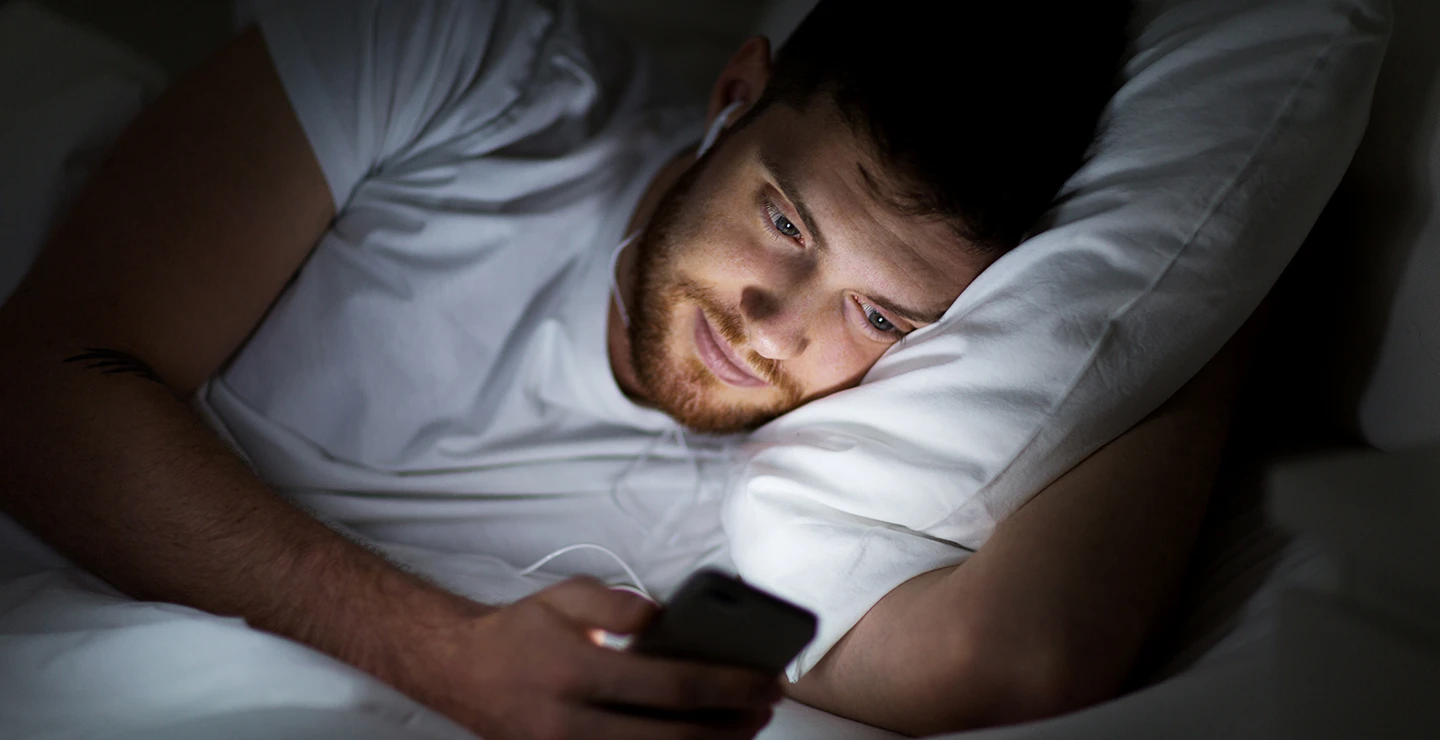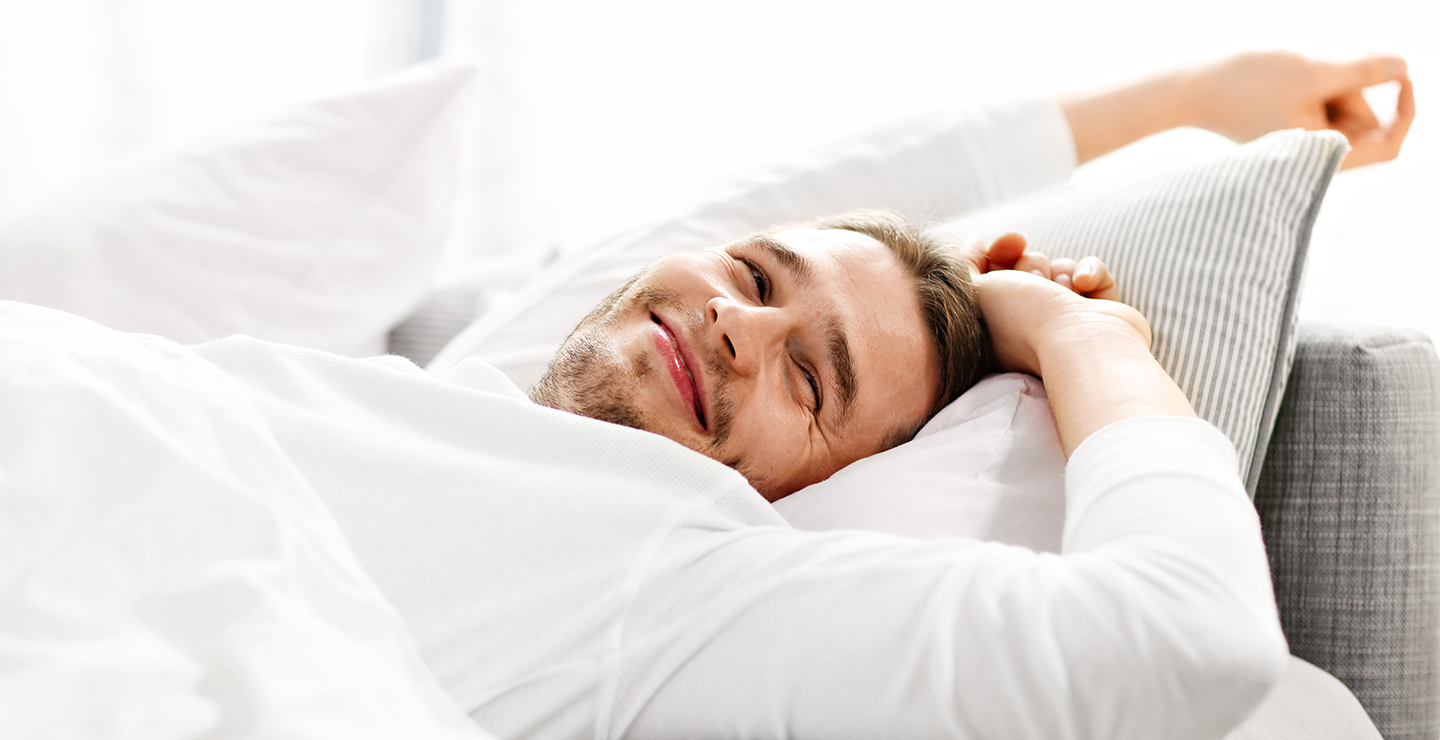The significant health effects of sleep deprivation
Everyone knows what it feels like to be sleep deprived—your mind feels a little foggy, little things seem to bother you more than they normally would, and you may even look or feel sick.
Struggles & Remedies


Everyone knows what it feels like to be sleep deprived—your mind feels a little foggy, little things seem to bother you more than they normally would, and you may even look or feel sick. Both your body and your mind suffer when you don’t get enough sleep. In fact, the physical effects of sleep deprivation range from memory to weight management, even your sex life! Sleep has become so scarce for most Americans that the CDC has actually declared inadequate sleep a public health epidemic. In a world that’s constantly on the go, your body and mind need a chance to rest and re-charge.
EFFECTS OF SLEEP DEPRIVATION ON THE BODY
Weight Gain:
When you’re sleep deprived, your body increases the hormone that tells you you’re hungry while decreasing the hormone that controls your appetite—bad combination. In a 2004 study, people who slept less than six hours a day were almost 30 percent more likely to become obese versus those who slept seven to nine hours. [SOURCE: https://www.webmd.com/sleep-disorders/features/10-results-sleep-loss?print=true]. Sleep deprivation has further shown to stimulate cravings for high-fat, carbohydrate-heavy foods, leading many researchers to believe that healthy, adequate sleep ought to be included as part of first line therapy weight loss programs.
Heart Disease:
“In fact, your risk for Type 2 diabetes nearly triples with chronic sleep deprivation.”
Chronic sleep deprivation can affect the body’s ability to regulate cortisol, the primary stress hormone. Increased cortisol levels are thought to increase blood pressure, which can lead to host of other problems, not the least of which is elevated risk for heart disease. Heart disease, the leading cause of death in the US for men and women, risk dramatically increases with chronic sleep deprivation.
Diabetes:
With regular loss of sleep, less insulin, the hormone that regulates blood sugar, is released into the body after meals. This creates a vicious cycle, as it causes the body to secrete more cortisol, which causes you to stay awake while also making it harder for insulin to do its job. [SOURCE: https://www.sleepfoundation.org/articles/link-between-lack-sleep-and-type-2-diabetes]. The result is too much glucose in the bloodstream, which is the signal for Type 2 diabetes. In fact, your risk for Type 2 diabetes nearly triples with chronic sleep deprivation. More specifically, people regularly getting only four to six and a half hours of sleep per night see a decrease in deep sleep, which is considered the critically important restorative stage of sleep, and also plays a key role in the body’s modulation of insulin sensitivity and blood sugar control.
Lowered Immunity:
One of the longest-standing sleep connections researchers and neurologists have made is that between sleep and your immune system. Without sufficient sleep, the body makes fewer cytokines, a type of protein that targets infection and inflammation [SOURCE: https://www.sleepfoundation.org/articles/how-sleep-affects-your-immunity] activating the body’s immune response. This is one of the most understood side effects of sleep deprivation.
Premature Aging of Skin
Anyone who’s pulled an all-nighter studying or stayed up with a fussy baby knows a night of missed sleep can cause unwanted cosmetic effects like dark circles under the eyes or sallow skin. But there’s something more physiologically substantial that happens to the skin with more persistent sleep deprivation. Persistent lack of sleep causes your body to release more cortisol, the stress hormone that not only increases blood pressure, but breaks down collagen in the skin. Collagen is the protein that allows skin to stretch and expand while maintaining a youthful smoothness. As collagen is eroded, when the skin stretches it loses its elasticity and becomes loose and wrinkled. “It’s during sleep that growth hormone is released,” notes Phil Gehrman, PhD, and clinical director of Behavioral Sleep Program at the University of Pennsylvania. “It seems to be part of normal tissue repair—patching the wear and tear of the day.”
Reduced Sex Drive:
Last, but certainly not least, one of the negative health effects of sleep deprivation is lower libidos and interest in sex, in both men and women. When the body becomes stressed due to sleeplessness, the brain suppresses production of sex hormones like estrogen and testosterone in favor of stress hormones like cortisol. This shift in hormone levels results in lower sex drive, infertility, and erectile dysfunction [SOURCE: https://www.psychologytoday.com/us/blog/the-truth-about-exercise-addiction/201808/the-connection-between-sex-and-sleep]. And, in a vicious cycle, the complications of a lower libido can also lead to trouble sleeping. Sex releases oxytocin which helps cue relaxation to your brain, creating a sedative effect that helps your brain understand it’s time to sleep.
As troubling as these physical effects of sleep deprivation are, what is equally impactful to our quality of life are the effects sleep definitively has on our mind—our mental clarity and decision-making, and our emotions.
As troubling as these physical effects of sleep deprivation are, what is equally impactful to our quality of life are the effects sleep definitively has on our mind—our mental clarity and decision-making, and our emotions.
EFFECTS OF SLEEP DEPRIVATION ON THE MIND
Poor Judgment:
In the plainest of terms, lack of sleep makes you stupid. A healthy amount of sleep is vital to “brain plasticity,” or the brain’s ability to adapt to input. Sleep deprivation causes us to be unable to process what we’ve learned and we have more trouble remembering it later when we need it. And one of the things we seem unable to learn is the impact lack of sleep is actually having on us at the time. “Studies show over time, people who are getting six hours of sleep, instead of seven or eight, begin to feel they’ve adapted to that sleep deprivation, that they’re ‘used to it.’ But when given mental alertness and cognitive tests, they continue to go downhill,” says Dr. Gehrman. “There’s a point in sleep deprivation when we lose touch with how impaired we are.” [SOURCE: https://www.webmd.com/sleep-disorders/features/10-results-sleep-loss#3]
Irritability, Anxiety, and Depression:
Insomnia and depression feed off each other—insomnia is often one of the first symptoms of depression and sleep loss often aggravates the other symptoms of depression. University of Pennsylvania researchers restricted subjects who slept 7.4 hours per night, to an average of about 5 hours of sleep per night for one week. The subjects reported feeling more stressed and mentally exhausted. Once they resumed normal sleep schedules, they reported dramatic improvement in mood. [SOURCE: Dinges 1997 - Dinges, D. et al., Cumulative Sleepiness, Mood Disturbance, and Psychomotor Vigilance Decrements During a Week of Sleep Restricted to 4 – 5 Hours Per Night, Sleep. 1997 Apr; 20 (4): 267–277.]
WHAT CAN YOU DO TO AVOID SLEEP DEPRIVATION?
Changing habits for the sake of better health is hard. As serious and alarming as these sleep deprivation effects are, it takes a lot for people to take action and correct these behaviors in their life because it feels overwhelming. According to recent research, almost a 1/3 of people will experience occasional sleeplessness symptoms for over a year before taking action [SOURCE: P&G Numerator Custom Survey, January 2020, n=1,488]. There’s no need to suffer alone or just accept it. If you’re experiencing any of the above health issues, contact your healthcare provider. If you’re experiencing occasional sleeplessness, the sleep experts at ZzzQuil are here to help!




